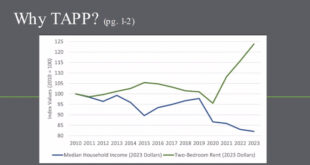Goal is to mitigate heavy-use camping and day-use areas
[ By Kendra Walker ]
With more and more recreation enthusiasts discovering the Gunnison Valley—and thus pushing the impact limits on our backcountry—fee camping and day-use fee areas in Crested Butte’s drainages may soon be a reality.
During the December 1 Mt. Crested Butte Town Council meeting, the Sustainable Tourism & Outdoor Recreation (STOR) committee presented an update to its proposed fee program, which will go through the Federal Lands Recreation Enhancement Act process this next year. The goal of the fee program is to designate camping and provide amenities in high-use drainages in Crested Butte, as well support the maintenance and coordination of recreation management in these areas.
“Our public lands are being used more and more and the community wants to do something about it,” said Gunnison County stewardship coordinator Joe Lavorini. “We want to protect the public land experience that so many of us live here for.”
This spring, STOR partnered with the Gunnison Ranger District, Gunnison County, Crested Butte Conservation Corps, the Gunnison County Stewardship Fund and others to act on the STOR committee’s recommendation and began implementing designated camping in the Slate River and Washington Gulch drainages.
Under the proposed plan, designated camping areas that would be subject to fees would include the Slate River Valley, Washington Gulch, Brush Creek and Cement Creek. Fees would be $10 to 15 per night depending on the amenities.
Lake Irwin and Kebler Pass winter trailhead use would be subject to designated day-use fees, at $5 per vehicle or $20 for an annual pass. Fees are not applicable to walk-ins and bike-ins.
If approved, the STOR’s goal is to implement the fees in May 2022. Fees would be collected from May 25 to September 30 for camping areas and Lake Irwin, and from November 15 to April 15 for Kebler Pass.
The fees would allow for amenities like pit toilets, fire rings, parking spaces, trash and recycling receptacles and forest protection officers available to respond to safety and security issues. “[These new amenities] are going to require a budget to maintain and operate and Gunnison National Forest just doesn’t have that budget,” said Western Colorado University Master in Environmental Management student Lizzy Bauer. “The development of designated campsites has certainly decreased impacts, but what needs to be addressed is the long-term operation of things like pit toilets and addressing the litter problems that are in the area. And that can’t be done without a budget.”
The proposal will include an extensive community engagement period from May 1, 2021 to September 1, 2021. “I really want to stress how much public comment is considered,” said Bauer. “This is really based on public response and if they don’t support the plan it most likely won’t go through.”
Bauer concluded, “This plan defers the cost to the users, so we’re implementing the fee to the people that are creating the impacts. It will be a public partnership with the Forest Service where users are getting a benefit for these campsites and they’re supporting the forest that they’re recreating on.”
“The crowds are here, which is why this conversation is happening,” agreed council member Roman Kolodziej.
The STOR committee plans to submit its finalized proposal to the U.S. Forest Service by January or February 2021 to begin the review process.
 The Crested Butte News Serving the Gunnison Valley since 1999
The Crested Butte News Serving the Gunnison Valley since 1999



